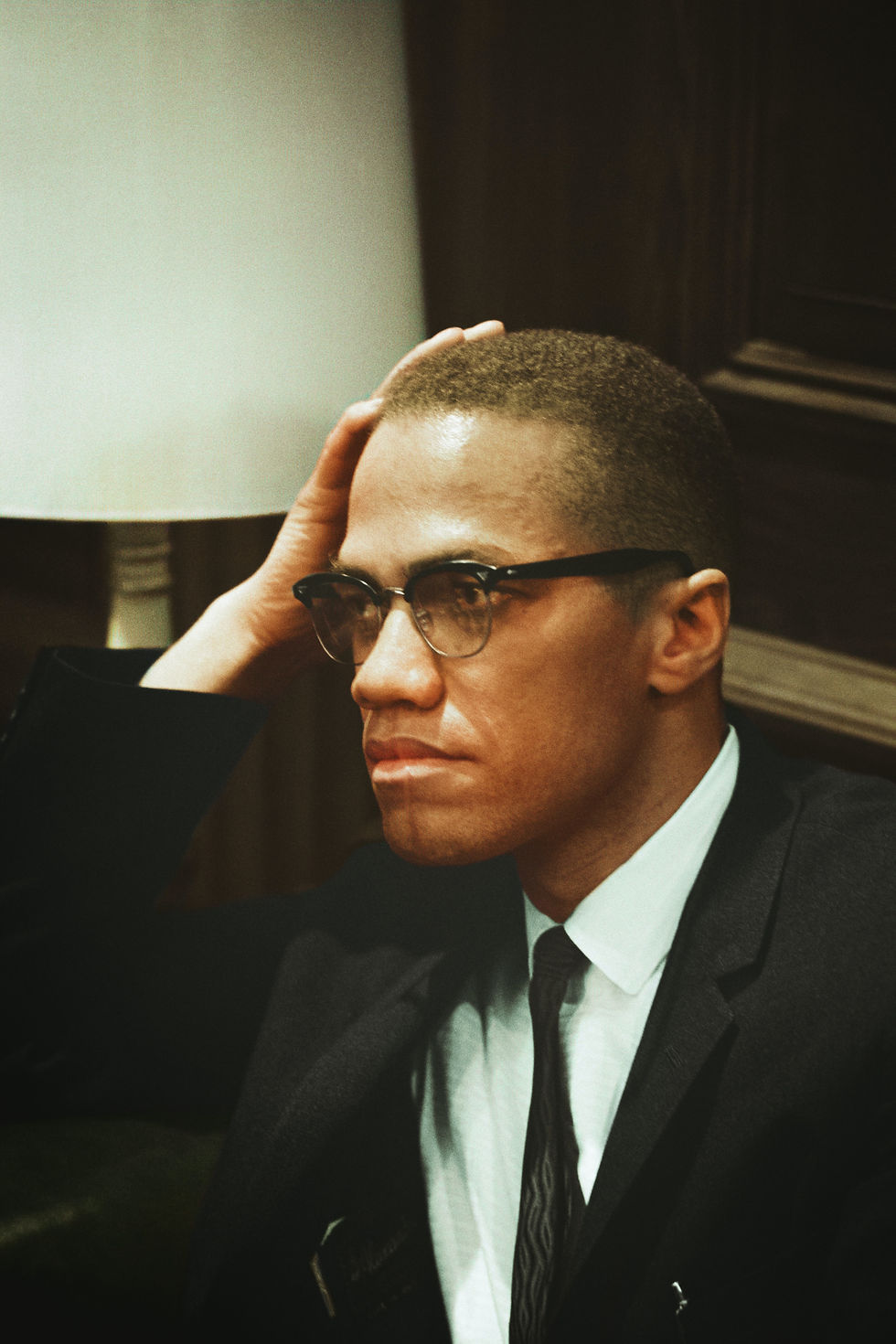Malcolm X and the Revolutionary Transformation of Civil Rights
- msrayparker226
- Jan 31, 2025
- 3 min read

Malcolm X stands as a beacon of strength, resilience, and radical change within the Civil Rights Movement. His compelling speeches, advocacy for Black empowerment, and his readiness to confront systemic racism transformed not just the movement, but the broader conversation around race in America. Understanding his influence helps us grasp the context and urgency of the civil rights struggle, even today.
The Early Life of Malcolm X
Born Malcolm Little on May 19, 1925, in Omaha, Nebraska, Malcolm X faced tremendous challenges early in life. At just six years old, he lost his father, a well-known Baptist minister and advocate for the Universal Negro Improvement Association, who was tragically murdered. Following his father’s death, his mother was institutionalized, leaving Malcolm and his siblings to navigate the hostile environment of foster care and poverty.
This early exposure to racial injustice and personal trauma fueled Malcolm's later activism. In his teenage years, Malcolm engaged in activities considered delinquent, which culminated in a lengthy prison sentence. Interestingly, his time in jail became a transformative experience. He discovered the teachings of the Nation of Islam, which shaped his future identity as Malcolm X. Upon his release in 1952, he quickly ascended as a prominent voice within the organization.
The Shift in the Civil Rights Movement
Malcolm X offered a distinctly different perspective than many of his contemporaries. While figures like Martin Luther King Jr. advocated for nonviolent protest, Malcolm supported the right to armed self-defense. He argued that civil rights discussions should not simply focus on integration but must also address the need for true liberation and equality.
His impactful quote, “by any means necessary,” resonated with many who were frustrated by the slow progress in improving the lives of African Americans. In 1965, he stated that while the fight for civil rights included voting and education, it also required economic independence and self-determination. His speeches urged immediate action, and they served as a rallying point for those who felt marginalized and ignored.
According to a 2017 survey from the Pew Research Center, about 61% of African Americans felt that the Black Lives Matter movement was important for addressing issues of racial inequality—similar to the urgency Malcolm X expressed over half a century ago. His call for cultural pride and economic power remains relevant today, illustrating the ongoing struggle for empowerment.

The Legacy of Malcolm X
The assassination of Malcolm X in 1965 marked a tragic moment in American history, but his legacy lives on. His autobiography, co-written with Alex Haley, is still widely read and offers insight into his life, his transformation from Malcolm Little to Malcolm X, and his beliefs. In fact, it has sold over 1.5 million copies and continues to be a significant influence for activists around the world.
Moreover, Malcolm X’s global perspective on human rights sparked a broader understanding of civil rights that goes beyond American borders. He frequently advocated for unity among marginalized groups, urging them to confront oppression collectively. This vision laid the groundwork for contemporary movements that advocate for intersectionality, highlighting how different forms of discrimination can intersect.
In recent years, various civil rights organizations have embraced Malcolm X's strategies. For instance, activists advocating for the rights of immigrants often reference his ideas of self-identity and resistance. This shows how his teachings transcend time and motivate new generations to challenge the status quo.
A Call to Action
Malcolm X fundamentally reshaped the conversation around civil rights, emphasizing empowerment, cultural pride, and unwavering resistance to oppression. His life embodies resilience, and his messages continue to influence modern movements for racial justice.
As we honor Malcolm X's contributions, we are reminded that the pursuit of equality is far from over. His legacy encourages us to confront current injustices with the same fervor and passion he demonstrated. This reflection on his life invites us all to engage actively in the ongoing fight for justice, proving that the principles he stood for are as vital today as they were in his time.


